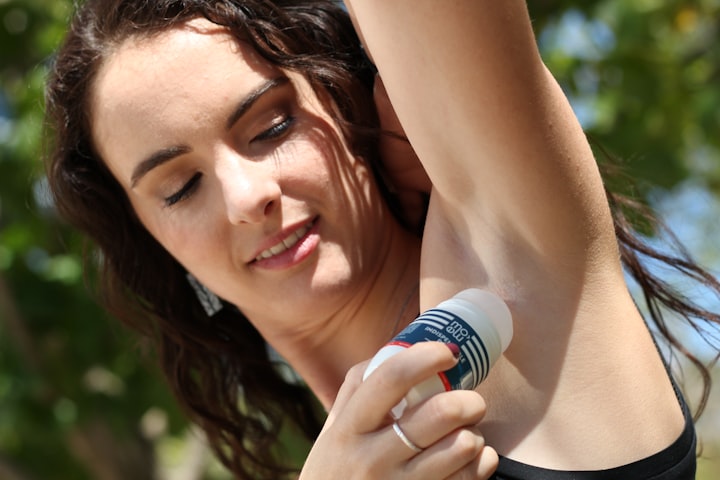Busting Body-Odor Myths
Insights from Dermatologists

Body odor is a common concern for many individuals, often leading to self-consciousness and a search for solutions. However, amidst the plethora of advice and information available, it can be challenging to separate fact from fiction. In this article, we turn to dermatologists, the experts in skin health, to debunk eight prevalent body-odor myths and provide accurate insights to help you better understand and address this issue.
Myth: Sweating is the primary cause of body odor.
Fact: Contrary to popular belief, sweat itself is odorless. Body odor is mainly caused by the interaction between sweat and bacteria on the skin's surface. Bacteria break down sweat into substances that emit an unpleasant odor.
Myth: Body odor is always a result of poor hygiene.
Fact: While maintaining good hygiene is important, body odor is not solely determined by cleanliness. Factors such as genetics, hormonal changes, diet, certain medical conditions, and medications can contribute to body odor. Hygiene practices alone may not eliminate the odor if these underlying factors are present.
Myth: Stronger antiperspirants or deodorants eliminate body odor more effectively.
Fact: The effectiveness of antiperspirants and deodorants in combating body odor is not solely dependent on their strength. The key lies in choosing products that suit your needs and preferences. Antiperspirants reduce sweat production, while deodorants mask or neutralize odor. Look for products with ingredients like aluminum chloride or zirconium to control sweat and fragrances that combat odor-causing bacteria.
Myth: Shaving underarm hair reduces body odor.
Fact: While shaving may temporarily reduce the perception of body odor by removing hair that can trap bacteria and sweat, it does not eliminate the root cause. Maintaining proper hygiene, using appropriate products, and addressing other contributing factors are essential for long-term odor control.
Myth: Natural remedies are always effective in preventing body odor.
Fact: Natural remedies like baking soda, lemon juice, or vinegar are often suggested as alternatives to commercial products. However, their effectiveness may vary from person to person, and they may not provide long-lasting odor control. It's essential to consult with a dermatologist to determine the best approach for your specific needs.
Myth: All body odors are the same.
Fact: Body odor can vary significantly from person to person due to factors such as genetics, diet, lifestyle, and overall health. Each individual has a unique body odor profile, and what works for one person may not work for another. It's crucial to address body odor concerns on an individual basis.
Myth: Overwashing or scrubbing vigorously eliminates body odor.
Fact: Excessive washing or scrubbing can disrupt the skin's natural balance and potentially worsen body odor. It can strip away beneficial bacteria and natural oils, leading to dryness or irritation. Gentle cleansing with a mild soap or cleanser is usually sufficient to maintain proper hygiene.
Myth: Perfumes or fragrances effectively mask body odor.
Fact: Applying perfumes or fragrances directly to areas prone to body odor does not address the underlying cause. Fragrances may temporarily mask the odor, but they do not eliminate bacteria or control sweat production. It's important to address body odor at its source rather than relying solely on fragrance.
Conclusion
Understanding the truth behind common body-odor myths is crucial for effectively managing this concern. Dermatologists emphasize the importance of addressing the root causes of body odor, such as sweat and bacteria interaction, rather than relying solely on superficial solutions. By maintaining good hygiene, using appropriate products, and addressing any underlying factors, individuals can effectively manage body odor and feel more confident in their daily lives. Remember, if you have persistent or severe body-odor concerns, consulting a dermatologist is always recommended for personalized advice and treatment options.






Comments
There are no comments for this story
Be the first to respond and start the conversation.